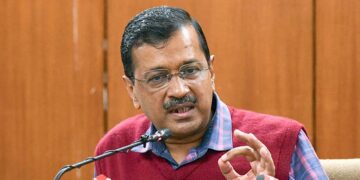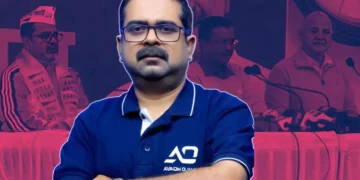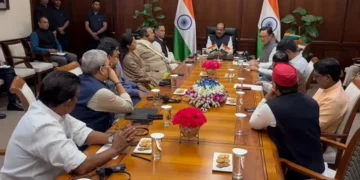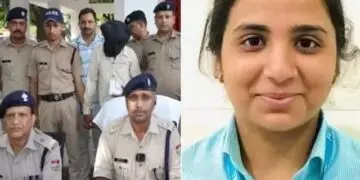
New Delhi:
The Delhi High Court ruled that the absence of cash recovery cannot serve as prima facie evidence of corruption because modern technology allows criminals to conduct crimes without leaving any evidence behind. This ruling was made while Manish Sisodia, the leader of the AAP, was denied bail in connection with proceedings involving the excise policy scandal.
In light of the comments made by various hawala dealers and other witnesses that were recorded throughout the investigation, the high court said that it could not accept the position made by Mr. Sisodia regarding the non-recovery of cash from him.
The former deputy chief minister of Delhi filed bail requests in response to money laundering and corruption charges brought by the ED and CBI in relation to the alleged liquor scam, but Justice Swarana Kanta Sharma denied them.
Also Read: http://with-his-iconic-pose-shah-rukh-khan-celebrated-kkrs-victory-observe
The comprehensive order was posted on the high court’s website on Wednesday, even though the two petitions were dismissed on Tuesday.
At this point, the prosecution has established a prima facie case under Section 3 of the PMLA against Manish Sisodia, according to this court. It is important to acknowledge that in cases involving charges of money laundering involving numerous accused individuals, recovering a specific sum of cash from an individual may not always be a legal necessity, as stated by the top court.
Since the criminal’s mind employs new technology to commit crimes without leaving evidence of their offenses, the court ruled that the non-recovery of any amount of money in cash cannot be a prima facie indication that no corruption has occurred.

The case involves money laundering and the committing of a “serious offence” of corruption in public office, the court noted:
These crimes “strike at the heart of our economic and social systems, undermining the rule of law and eroding public trust in our institutions” , according to it.
Additionally, the high court stated in a 106-page ruling that “one of the worst forms of corruption can be the tendency of taking the lawful resources of the poor ordinary people and giving them to the rich.”
The court said small and medium-sized enterprises, which are managed by common people and are the backbone of economic growth and job creation, are particularly vulnerable to the detrimental impacts of corruption that is prima facie visible in the formulation of the new excise policy.
It said the new excise policy has “eradicated” the common and small-time businesses and gave the entire playing field in the liquor business to those who had “money, power and had created a cartel” on the basis of financial gains to those formulating a policy, which adds to the seriousness of the offence.
The court ruled that small and medium-sized businesses, which are run by regular people and are essential to job creation and economic growth, are especially susceptible to the negative effects of corruption, which are evident from the outset in the creation of the new excise policy. ALSO READ:-https://livendtv.com/nikhil-patel-reacts-to-rumors/
It stated that the new excise policy had “eradicated” small and common businesses and given those with “money, power and had created a cartel” the entire liquor industry playing field. This, it said, increased the seriousness of the offense because those who formulated the policy benefited financially.
Even though the legal system’s courts are referred to be thorns and are thought to be a constant obstacle to unchecked corruption,
In its ruling, the top court noted that Mr. Sisodia had seriously abused his position of authority and betrayed the public’s trust.

In the Delhi excise policy case, the Rouse Avenue Court in Delhi ordered the Enforcement Directorate (ED) to present Manish Sisodia, the deputy chief minister, who was detained, before it on Friday. The central probe agency filed an application seeking the AAP leader’s production warrant in the excise policy issue, and news agency ANI said that this led to the court issuing its directive.
The deputy chief minister was placed under 10-day jail by the Enforcement Department (ED), which had arrested Sisodia on Thursday on suspicion of money laundering related to purported anomalies in the since-canceled Delhi tax policy.
The court stated that following Sisodia’s presentation, it will take into account the ED’s plea in the case.
Sisodia was placed under 14 days of judicial detention on March 6 by a CBI court in a related case brought by the Central Bureau of Investigation about allegations of corruption in the creation and execution of the excise policy for 2021–2022. As a result, Sisodia is currently being held at Tihar jail.
On February 26, the CBI took him into custody.
The AAP leader’s arrest by the ED occurs one day ahead of his scheduled bail hearing before the CBI court on Friday.
If the ED manages to get hold of him, he would be brought to the agency’s central Delhi headquarters to be questioned, have his statement further recorded, and face off against other accused parties in the excise policy case.






































